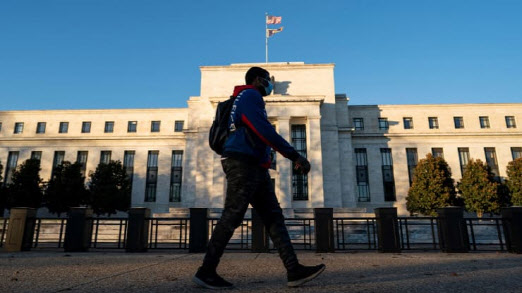Experts believe that the Fed believes that the risk of overvaluing the stock market is greater than the risk of rising government bond yields, and is waiting until the inflation concerns are naturally resolved without succumbing to market demand. However, I thought that the Fed would come up with a countermeasure only when interest rates became so disorderly that it was difficult to control.
|
As inflation expectations rise in the market, government bond yields are rising and the stock market is showing an adjustment due to concerns that the Fed may turn monetary policy toward tightening earlier than originally expected to counteract this. In this situation, on the 4th (local time), Fed Chairman Jerome Powell acknowledged that “some inflationary pressure may arise as economic activity resumes,” but “I will be patient in responding to policy even if temporary inflation rises in the US economy.” “This disappointed investors who expected market stability.
As a result, the 10-year Treasury bond rate rose to the 1.5% level again, and the previous day (5th), due to the overlapping material of the favorable employment index in February, it also soared to 1.626% during the day.
However, experts believe that the Fed will not hurry to come up with a countermeasure even in such a situation. Considering the overvalued stock market adjustment as natural, it is interpreted as meaning that it will not be swayed by market demands.
Kit Jerks, CEO of Societe General’s Global Foreign Exchange Strategy, said, “Only bond market participants can shout to the Fed to deliver what they want, but the Fed’s position will not have any plans to rush an operation twist right away.” Within the situation, interest rates are not running in a disorderly manner to widen the credit spread (= the difference in interest rates between government bonds and corporate bonds),” he said.
“The Fed seems to have a big picture not to succumb to even if the stock market volatilely demands this and that as the risk preference sentiment is shaken,” he said. “Now, the stock market’s overvalued status is more dangerous than the rise in bond yields. ”He pointed out.
In addition, as the Fed is deliberately encouraging inflation to rise in order to recover the economy, the market concerns are expected to be resolved in the near future.
Francesco Garzarelli, CEO of Eisler Capital Macro Research, said, “If the Fed is expected to hit inflation this year, it will fall below the target next year.” It must be hot.”
In addition, referring to the fact that the bond yield curve is steepening as long-term government bond yields are relatively higher due to rising inflation expectations, “This is due to the growing expectation that inflation will increase due to the amount of finance and the expansion of corona 19 vaccination, etc., confirmed by actual indicators. It is not,” he said. “The Fed is also showing a policy stance that it will go while checking the indicators with eyes rather than preemptively moving according to predictions.”
First, the Fed will focus on preventing short-term interest rates from rising by prolonging zero interest rates, and it is predicted that long-term interest rates will be curtailed only when the long-term interest rate rises become uncontrollable. This is why Chairman Powell implied’the disorderly rise in bond yields’ as a condition for the Fed to intervene directly.
Kararambos Pissouros, senior market strategist at JFD Bank, noted the Fed’s policy commitment to’allow inflation to exceed the 2% target for several months in the short term’. He predicted, “The Fed expects that concerns about high inflation will be resolved on its own in the near future. In this case, stocks and other risky assets will rebound again,” he predicted.

